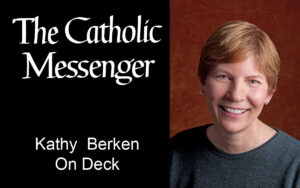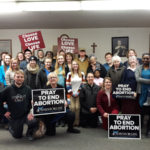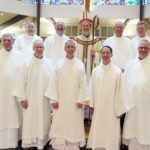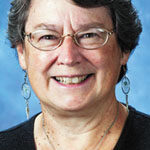By Kathy Berken
Restlessness is one of the most prevalent concerns of people that I work with in spiritual direction. They don’t have peace in their hearts, and they don’t know how to find it.
 Let me see if I can help. As we celebrate the feast of St. Francis this month, I invite you to pray the Prayer of Saint Francis. Despite common belief, Francis did not write this prayer. The earliest text dates only to 1912, written in French. Historians believe that it is highly unlikely that Francis would write a prayer that focuses on “I” and “me,” as the first half does, but rather on God. Still, the second half is similar to the prayer of one of Francis’ closest companions, Giles of Assisi:
Let me see if I can help. As we celebrate the feast of St. Francis this month, I invite you to pray the Prayer of Saint Francis. Despite common belief, Francis did not write this prayer. The earliest text dates only to 1912, written in French. Historians believe that it is highly unlikely that Francis would write a prayer that focuses on “I” and “me,” as the first half does, but rather on God. Still, the second half is similar to the prayer of one of Francis’ closest companions, Giles of Assisi:
“Blessed is he who loves and does not therefore desire to be loved; Blessed is he who fears and does not therefore desire to be feared; Blessed is he who serves and does not therefore desire to be served” (wikipedia.org/wiki/Prayer_of_Saint_Francis).
Both Giles’ prayer and the Prayer of Saint Francis are excellent prescriptions for restlessness. I think of these as sets of instructions on how to create a peaceful heart.
The Francis prayer asks God to make us an instrument of his peace. How? In the first stanza, we are invited to look at all the trouble in the world, which is where most people are stuck. “Yes, I know, that’s the problem,” we say. The world is full of hatred, injury, doubt, despair, darkness and sadness. What can I do about this? It’s overwhelming. I know. None of us has ever known a time when these things were absent, in the world or in our own lives.
But the Prayer of St. Francis explains that if we take the initiative, as we are called to do by our baptism, we can stop being hateful — at least momentarily — and instead sow seeds of love. Stop hurting others and instead sow seeds of forgiveness. Stop doubting and instead sow seeds of faith. Stop feeling despair and instead sow seeds of hope. Add light to the darkness and bring joy to sadness. All at once? Only if you are St. Francis, I suppose. Let’s be realistic. Begin with one thought of doing something different this time, one small word, one moment when we think about one person, one situation where we might bring something positive.
The second stanza continues, but with a slightly different attitude. Here, we ask God to help us focus more on other people’s needs and less on our own. However, I do contend that in order to be spiritually and emotionally healthy, we have to meet our basic needs before we can help others. That said, we continue to ask God to help us find peace. Dear God, we pray, help us to console others first. Help us to understand others before we look for people to understand us. Help us to love others before we seek out love for ourselves. Help us to give to others before we ask for something for ourselves. Help us to forgive others before we look to others to forgive us. And then, once we have done these things, we will discover that our dying to ourselves, our love for others and our sense of compassion will lead us to eternal life. And to a peaceful heart.
After Francis’ conversion from a life of privilege and wealth to one of poverty and service, he found peace. I believe that regardless of privilege or wealth, we can turn our attention outward and think of how to sow seeds of peace in our own wild and barren places. In turn, we will notice green shoots growing from dry earth, and a sense of peace filling our hearts.
(Kathy Berken has a master’s degree in theology from St. Catherine University, St. Paul, Minn. She lived and worked at The Arche, L’Arche in Clinton 1999-2009 and is author of “Walking on a Rolling Deck: Life on the Ark (stories from The Arch).”)











